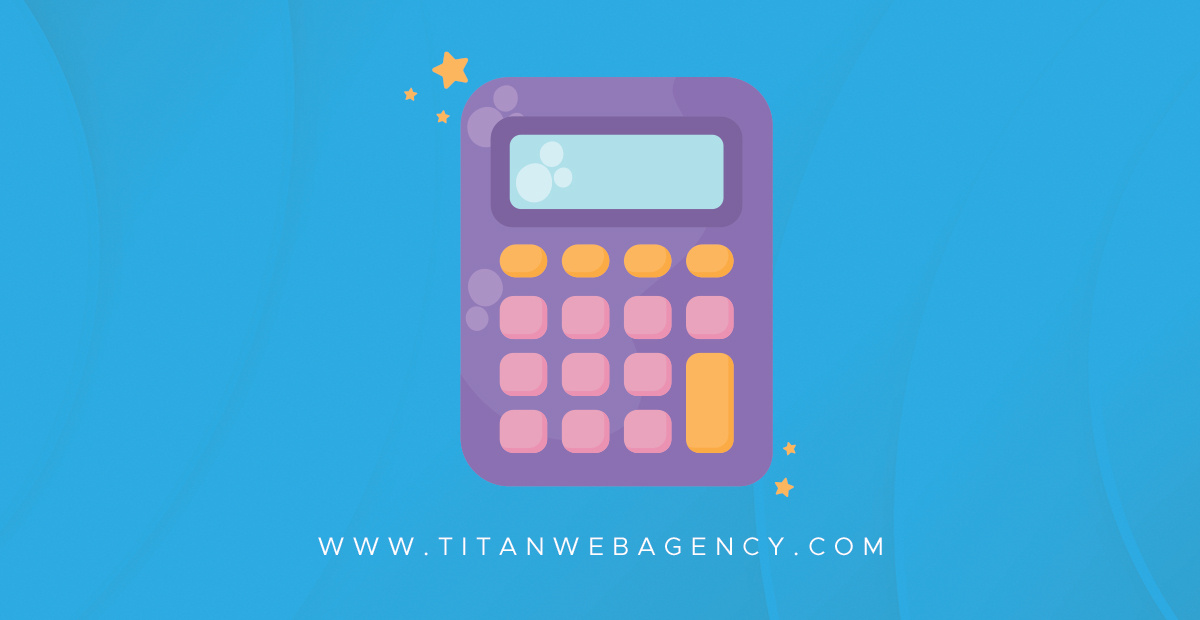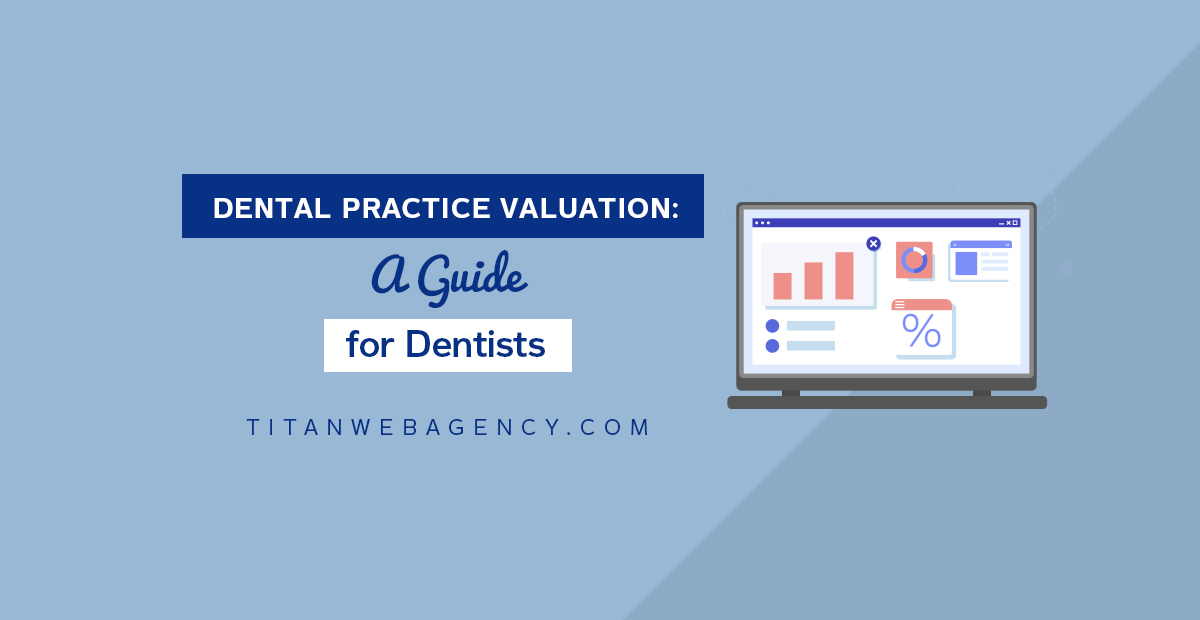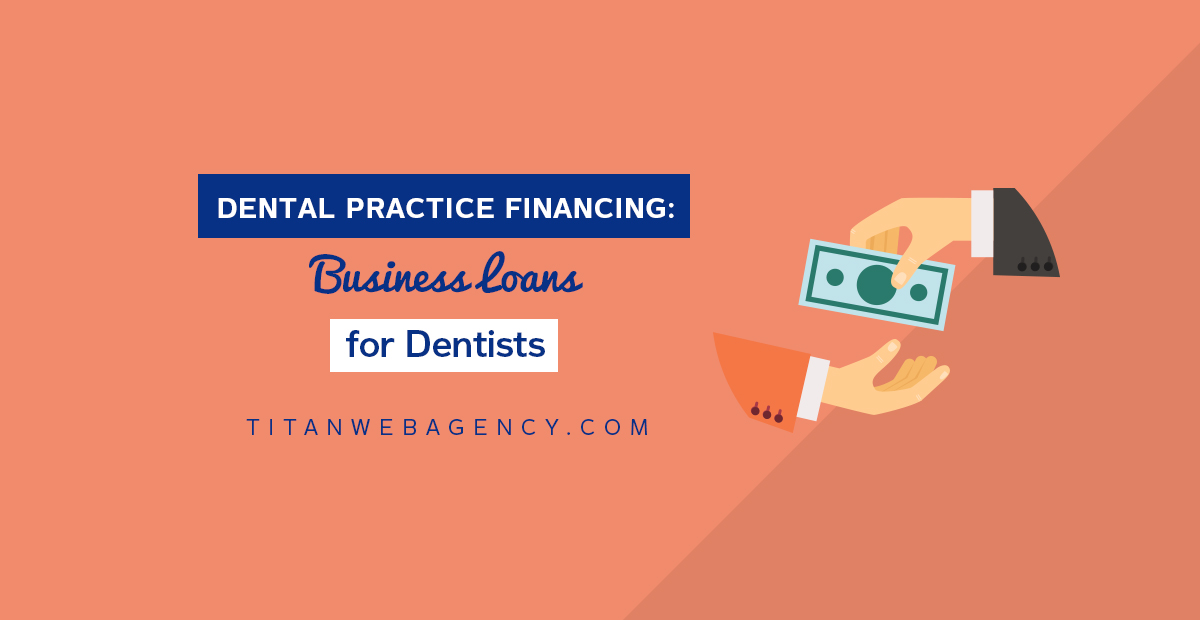Dental CPA: Why Hire a Dental Accountant for Your Practice?

Dentists who own their practices are highly trained professionals with the skill and experience to treat patients. A dentist’s professional training may be inadequate in running a business, outside of dealing with patients. One such need may be in the dental practice’s accounting. While many dentists try to handle their accounting without assistance, it can be a costly mistake if you don’t have the proper training.
At Titan Web Agency, we talk to our dental clients about many aspects of practice marketing and growth and that includes the decision to hire a dental CPA and how that can impact practice growth goals. With that in mind, here’s our take on the benefits of hiring a dental CPA and how to hire one for your dental practice.
What is a Dental CPA?
A dental CPA is a Certified Public Account who has specialized in accounting and tax reporting for dental practices throughout their career. While all CPAs learn important accounting skills that could be useful to any business, there are special considerations involved with accounting for dental practices. Hiring an experienced dental CPA is preferable to hiring a general CPA.
We’ll go into detail about how hiring a dental CPA can help your dental practice in the next section, but one of the most important considerations when hiring an accountant is making sure they can identify every potential tax credit or deduction that you may qualify for to help you minimize your tax bill. An experienced dental CPA will already understand the types of expenses that may be tax-deductible and can help you with deductions and credits, including depreciation for dental equipment.
Your dental CPA should have experience in the financial aspects of running a practice, including how your finances can impact your operations, marketing, and personnel. They can help you make smart financial decisions. They may even be able to help you decide whether to lease or purchase equipment, how and when to raise dental fee schedules, and how much compensation is fair for your staff.
What Can a Dental CPA Do for Your Practice?
Here are some of the ways that hiring a dental CPA can be beneficial to your dental practice.
Tax Preparation and Filing
The most important benefit of hiring a dental accountant for your practice is that they can help you with tax preparation to ensure that all taxes are filed and paid correctly. That starts with helping you gather information and report on the applicable forms, which may include the following:
Your dental CPA will ensure you take advantage of all tax deductions and credits your firm is eligible for to minimize the amount of tax you pay.
Financial Planning and Management
Your dental accountant can help you plan and manage your practice’s finances. For example, they can help you create a yearly budget to ensure you have the money you need to pay for overhead expenses such as your mortgage or rent, payroll, and taxes. They can also help you with succession planning.
Financial planning and management may include payroll management, hiring, and every other aspect of managing your finances as they relate to your practice.
Loan and Financing Advice
There may be times in the course of owning a practice when you require obtaining a business loan for your practice. Options may include a bank or credit union loan, a line of credit, or equipment financing. If you need financing, your dental accountant can help you evaluate your options.
It can be difficult for a practice owner who doesn’t have accounting or finance experience to compare options when the features and fees don’t allow for an apples-to-apples evaluation. Your CPA will help you scrutinize the financial impact of contracts and choose the best option for you and your practice.
Practice Acquisition, Mergers, and Transition Advice
You may decide that acquiring another practice or merging with a competitor is the best way to achieve your dental practice growth goals. You may also need advice if you’re nearing retirement and planning to sell your practice or leave it to a family member.
A CPA with dental experience can help you navigate the process of buying another practice or selling your own, including reviewing drafts of or evaluating contracts and helping you figure out the best way to transition out of your practice if you sell it or decide to step down and retire.
Bookkeeping and Payroll Processing
Two areas where dentists are most likely to make costly mistakes when they handle their own accounting are bookkeeping and payroll processing. In both cases, accounting errors can harm your practice.
The right accountant can help you set up an easy-to-maintain dental bookkeeping system and help you choose a reputable payroll provider to ensure that you don’t make mistakes that can lead to an IRS audit. Payroll mistakes can cause issues with employees and taxing agencies, so choosing the right providers and implementing a system that minimizes the risk of miscalculation and error is essential.
Regulatory and Legislative Updates
Regardless of where your practice is located, it will be affected by federal regulatory and legislative changes. Also, state-level changes and updates are likely to require some agility as you respond to the shifting landscape.
Your CPA can keep you abreast of updates to your accounting and finances, ensuring you have plenty of notice of any changes to your responsibilities. They can also help you revamp your tax strategy if necessary.
Tax-Planning Strategies
Tax planning may include decisions related to your overhead expenses, payroll, equipment purchases, and more. With help from a dental CPA, you can decide on the most advantageous times to make major purchases to use depreciation deductions wisely.
One of dental practice owners' most common mistakes is not thinking about taxes until it’s time to pay or file them. Strategic planning can help you save money while still meeting your tax obligations.
Maximizing Practice Value
Knowing how much your practice is worth is essential if you are considering selling your practice. You can use various methods to determine your practice’s value, and your accountant can help you do whatever is necessary to maximize the value before you sell.
Dental practice valuation may also be important for estate planning and retirement decisions. It’s common for dental professionals to undervalue their practices, so working with a dental accountant is essential if you’re planning to sell, merge, or retire.
How Much Does It Cost to Hire a Dental Accountant?
When we suggest hiring a dental CPA, the most common question is the cost. We understand that there’s a temptation to handle accounting yourself to save money; however, in our experience, the opposite is often true. Hiring a dental accountant can pay for itself through improved financial planning and tax savings.
How to Find a Qualified Dental CPA?
If you decide to find a qualified dental CPA, here are some pointers that will help you avoid choosing someone who lacks the expertise you need.
Step 1: Research CPA Firms with Specialized Dental Expertise
The first step is to identify CPA firms with specialized dental expertise in your area. A good way to start is by Googling relevant keywords. For example:
or
Dental CPA + Your City
Keep in mind that some accounting firms may list a full array of industries on their service pages, but that doesn’t mean they have the same level of experience for every industry. You should read the accountant bios and check whether they have a dedicated page for dental accounting services.
Step 2: Check for Credentials and Certifications
Any reputable dental accounting firm should list the credentials and certifications of its accountants. While you should check the CPA firm’s website, we suggest visiting CPAVerify.org to verify each accountant’s credentials.
Step 3: Check the Firm’s Availability and Location
Any firm you are considering should be close to your location. From the perspective of state taxes and regulations, a local firm is more likely to understand what’s required and can guide you to minimize your state taxes.
Availability is also important. There’s no point in getting to the interview stage if a firm cannot take you on as a client.
Step 4: Consider the Firm’s Fees and Payment Policies
Fees are hugely important in the decision-making process since you’ll need to be sure you can afford a firm’s services. We should note that many firms don’t list fees on their websites. While we recommend checking, you may need to defer your fee evaluation until the interview stage.
Step 5: Read Client Reviews
Client reviews can be helpful when evaluating potential dental CPAs. We suggest reviews rather than testimonials because reviews are generally written independently, while testimonials are often solicited, and most firms won’t share a testimonial unless it’s positive.
We suggest looking at general review sites such as Yelp, Google, and others. If the firm you’re considering has a Facebook page, look it over, read reviews, spot-check a few posts, and check comments for any complaints.
Step 6: Prepare Interview Questions
The final step is to interview any CPA firms you’re considering. Here are some questions to ask:
- How many dental practices have you worked with?
- Are you available year-round?
- Will a dedicated person be handling my account?
- How does your fee structure work?
- What tax program do you use? (Many dental offices choose QuickBooks.)
- How much experience do you have dealing with the IRS?
- What’s the most common mistake you see dental practice owners make with accounting?
Make notes of each response. We suggest looking for someone who has worked with 10 or more dental practices, will personally handle your accounting, and has direct experience with the IRS.
What Can a Dentist Write Off?
Dental practices can often overlook items that may impact their taxes. This isn’t a comprehensive list, but it's essential to be aware of some common write-offs.
- Startup costs
- Business expenses & business supplies
- Insurance premiums
- Employee benefits
- Dental equipment depreciation
- Retirement plan contributions
- Rent & Utilities
- Legal expenses
- Mortgage interest
Keep in mind that each of these write-offs comes with limitations, and all may not apply to your practice. Your dental CPA can help you identify and take advantage of all applicable write-offs for your practice.
Fast Track Your Practice Growth with the Help of a Dental CPA
One of the most important things you should know about hiring a dental CPA is that doing so can put your practice growth on the fast track by helping you save money on your taxes, avoid overspending, and prioritize financial planning.
Be sure to check out how the One Big Beautiful Bill Act impacts dentists. There are some significant changes that impact dentists.
Are you an accountant looking to boost your practice growth and financial success? Look no further than Titan Web Agency. Contact us today to schedule your complimentary consultation and discover how we can help you achieve your objectives.
Do you need help attracting new patients?
Schedule a FREE consultation!
Let's help your dental practice attract more patients with less wasted spend — no pressure, just results...
Recommended Reading
- Dental Practice Transitions: A Guide for Successful Dental Office Transitions
- Dental Office Names: How to Name Your Dental Practice
- Rebranding Your Dental Practice: 7 Things You Need to Know Before You Do
- Dental Practice Valuations: A Guide for Dentists
- Relocating Your Dental Practice? Here's Your Step-by-Step Plan [Free Checklist]
Jared has been preparing tax returns and helping clients with various accounting and tax needs since 2001. He has a broad range of accounting and tax advising experience in several industries including manufacturing, construction, retail, and in working with a variety of closely held businesses in various industries. As a Certified Valuation Analyst in the firm, he also provides a variety of Business Valuation services, from consulting to expert testimony and from IRS compliance to strategic planning and transactions.











.png)
.png)





